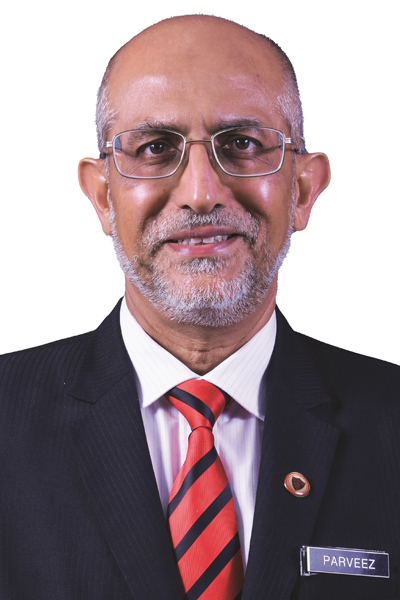2025 AOCS Annual Meeting & Expo.
Biotechnology
General Biotechnology
Applying genomics and new breeding techniques to enhance the versatility and productivity of oil palm
Monday, April 28, 2025
10:35 AM - 10:55 AM PST
Room: B115

Ahmad Parveez Ghulam Kadir, PhD
Director General
Malaysian Palm Oil Board
Kajang, Selangor, Malaysia
Presenting Author(s)
Abstract: Palm oil controls over 35% of the global trade in oils and fats and its versatility, affordability and potential for increased yield makes it a competitive and valuable product. Breeding high yielding oil palms, with improved traits, is thus a prerequisite for meeting the growing demand for this essential commodity. The recent release of the chromosome-scale genome assemblies of the African and American oil palm, will accelerate development of new and enhanced oil palm varieties. The availability of highly accurate fatty acid biosynthesis gene models and improved genome assemblies will aid in the development of planting materials with higher unsaturated oil, especially oleic acid, an important feedstock for the oleochemical industry, via conventional breeding and gene editing. Significant progress has been achieved in identifying genomics regions linked to fatty acid composition. The markers within these genomic regions are being utilized in a genomics guided breeding programme to accelerate development of planting materials with increased levels of unsaturated fatty acid. To fast-track the desired objective, method for genetic transformation was also successfully established for oil palm, laying the foundation for gene editing in the crop. Gene editing, a technology that realises base insertion, deletion, and substitution at specific sites of the target genes through specific methods, is often referred to as the new breeding technique (NBT). Clustered regularly interspaced short palindromic repeat (CRISPR)-associated protein 9 (Cas9) gene editing technique, is now being actively applied to enhance the oleic acid content. Higher oleic acid levels can be achieved by knocking out two key enzymes regulating oil palm fatty acid composition, namely palmitoyl-ACP-thioesterase (PAT) and oleoyl-CoA desaturase (FAD2) by CRISPR. Transgene-free genome-edited oil palms are also becoming a reality. This paper highlights the latest developments in using genomics guided breeding and gene editing, which ensures long-term economic viability of the oil palm industry.

.png)